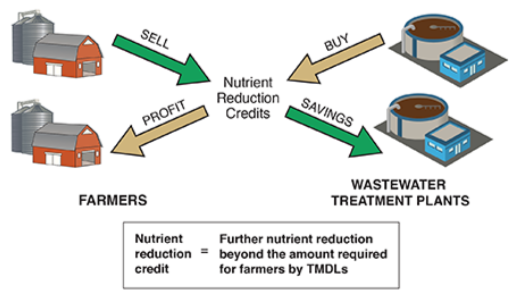“Trading“ allows an entity that can reduce one or more pollutants more cheaply than another to install pollution control measures that provide a greater reduction than required by law, and sell the excess reduction, or “credit“, to the other discharger for whom the cost of pollution reduction is greater. The result is that the credit generator makes money for the sale of credits, and the buyer saves money by using the credits to meet its discharge limitations less expensively, achieving the same overall reduction at a lower cost. In a time when funding is tight, this can result in a bigger bang for the buck in meeting the Bay TMDL goals.


